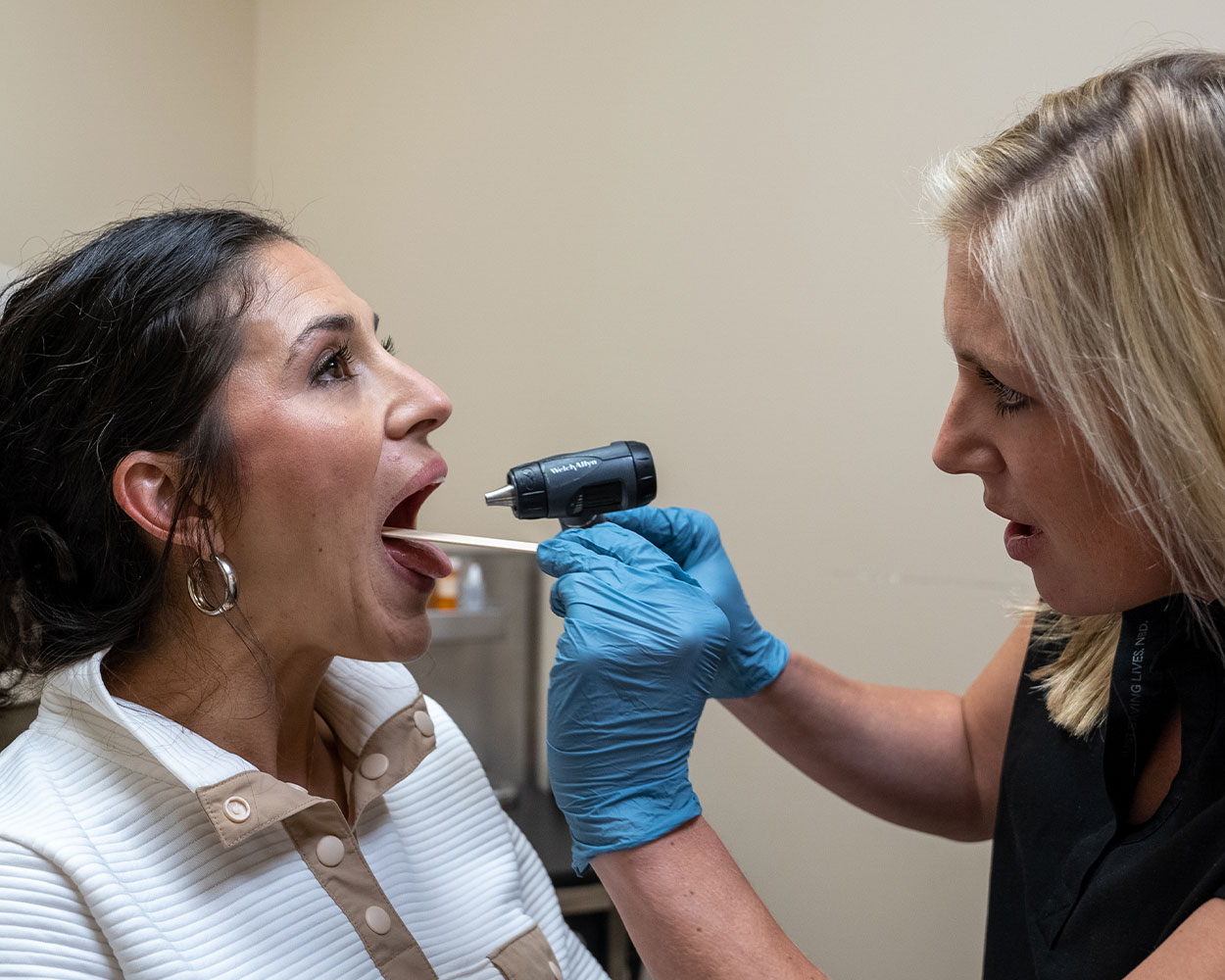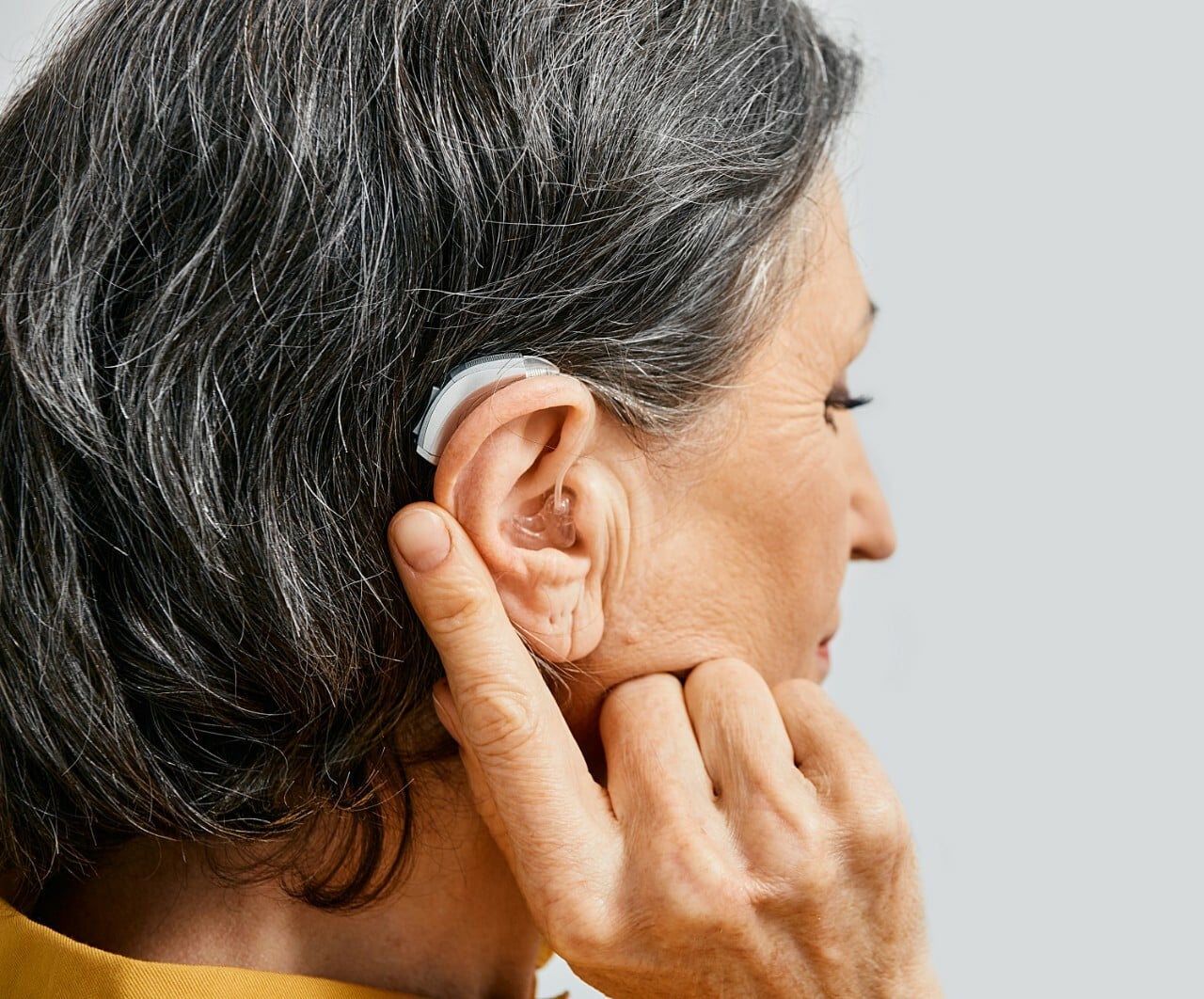Clear, natural hearing isn’t a luxury—it’s a necessity. When hearing loss starts to affect your…

When Should You See an ENT vs. an Upper GI Doctor for Swallowing Problems?
You are having trouble swallowing, and maybe you are also experiencing very bad acid reflux. What kind of doctor do you think you should see? For many, the answer is to make an appointment with a gastroenterologist who specializes in the upper gastrointestinal (GI) tract and the digestive tract. While they may be able to help you in some instances, it may be that you also need the help of an ENT Doctor.
It can be difficult to know which type of doctor best suits your needs, and sometimes you may even need both. In this article we will discuss the differences between the two most likely conditions you may have, which are laryngopharyngeal reflux (LPR) and gastroesophageal reflux disease (GERD).
Understanding Swallowing Disorders
Swallowing disorders, also known as dysphagia, refer to difficulties with the swallowing process. Dysphagia can manifest in various ways, from trouble swallowing certain foods or liquids to more severe symptoms like choking or gagging. These issues can be indicative of an underlying medical condition, making it crucial to seek medical attention if you experience persistent or severe swallowing difficulties. Early diagnosis and treatment can help manage the symptoms and improve your quality of life.
Symptoms of Swallowing Disorders
The symptoms of swallowing disorders can vary widely depending on the underlying cause. However, some common signs to watch for include:
- Difficulty swallowing (dysphagia)
- Trouble swallowing certain foods or liquids
- Choking or gagging while eating or drinking
- Coughing or wheezing after eating or drinking
- Regurgitation of food or liquids
- Unexplained weight loss or malnutrition
- Dehydration
- Fatigue
- Shortness of breath
If you notice any of these symptoms, it’s important to consult a healthcare professional to determine the cause and appropriate treatment.
ENT vs. Upper GI — Where Is Your Problem?
First, let’s define what LPR and GERD are exactly.
Laryngopharyngeal reflux (LPR) is a condition in which stomach acid escapes out of the stomach and goes into the esophagus and throat.
The acid irritates the throat, the vocal cords, and even the nasal passages. It may result in voice problems, swallowing problems, and sinus drainage. LPR is often referred to as “silent reflux” since many people with LPR do not experience heartburn. This is because the laryngeal area is much more sensitive to stomach acid than the esophagus.
The symptoms of LPR are felt primarily in the throat and may include the following:
- Sore throat
- Mild hoarseness
- The sensation of a lump in the throat
- The need to clear the throat
- The sensation of mucus sticking in the throat, and/or post-nasal drip
- Chronic (long-term) cough
- Difficulty swallowing
- Red, swollen, or irritated larynx (voice box).
Gastroesophageal reflux disease (GERD) occurs when stomach acid frequently flows back into the tube connecting your mouth and stomach (esophagus). This backwash (acid reflux) can irritate the lining of your esophagus.
Common signs and symptoms of GERD include:
- A burning sensation in your chest (heartburn), usually after eating, which might be worse at night
- Chest pain
- Difficulty swallowing
- Regurgitation of food or sour liquid
- The sensation of a lump in your throat
So when acid repeatedly “refluxes” from the stomach into the esophagus alone, this is GERD. When stomach acid backs up the esophagus and spills into the throat or voice box, this is LPR. People with GERD tend to experience heartburn or a feeling of acid coming up. People with LPR are more likely to have a cough, throat clearing, hoarseness, or a feeling of something stuck in their throat. Of course, some people have both!
Causes of Swallowing Problems
Swallowing problems can arise from a variety of factors, ranging from structural issues in the throat and esophagus to neurological conditions. Understanding the root cause of your swallowing difficulties is essential for effective treatment.
ENT-Related Causes
Ear, nose, and throat (ENT) specialists are often the go-to experts for diagnosing and treating swallowing disorders related to the throat and esophagus. Some common ENT-related causes of swallowing problems include:
- Gastroesophageal reflux disease (GERD): This condition occurs when stomach acid frequently flows back into the esophagus, causing irritation and inflammation. GERD can lead to symptoms like heartburn, chest pain, and difficulty swallowing.
- Esophageal cancer: A type of cancer that affects the esophagus, leading to symptoms such as difficulty swallowing, weight loss, and chest pain.
- Throat coughing: Persistent coughing can be a result of acid reflux or other conditions that irritate the throat.
- Swallowing difficulties: These can be caused by a variety of factors, including neurological conditions or structural abnormalities in the esophagus.
If you suspect that your swallowing problems are related to any of these conditions, it’s important to consult an ENT specialist for a thorough evaluation and appropriate treatment.
What To Do If You Experience LPR or Gastroesophageal Reflux Disease
You should start by examining your symptoms. Severe dysphagia can significantly impact a person’s ability to eat and drink, sometimes necessitating the use of a feeding tube for adequate nutrition. If your swallowing problems include food feeling stuck in your throat or you are experiencing the regurgitation of food, you may want to start by seeing a GI. You can also come straight to ExcelENT of Alabama for an ENT evaluation. Since GERD and LPR often occur together, we do sometimes collaborate with a GI doctor. The GI will focus on the esophagus and stomach, while we will focus on the throat area.
When it comes to LPR, the most effective treatment is usually a combination of medication and lifestyle changes. Lifestyle changes might include things like avoiding eating right before bed and reducing the intake of problem foods. Acidic foods and drinks are problematic, as well as caffeine, alcohol, carbonated beverages, mint, and high-fat foods.
Discover how the team at ExcelENT of Alabama can help manage swallowing problems, such as LPR.
Don’t put off making an appointment with ExcelENT’s Speech-Language Pathologist Janice Sullivan if you are experiencing swallowing problems. In severe cases of dysphagia, a feeding tube may be necessary to provide essential nutrients without the need for swallowing. Together with Dr. Christopher Davis, Janice can diagnose your issue and develop a treatment plan in no time. Schedule an appointment online, or call to discuss coming in at a time that’s best for you: 205-988-6858.


